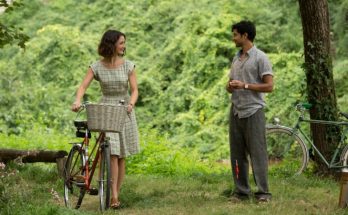Last year, Salman Rushdie was scared off, but this year Pakistani authors and musicians are here at the 6th Jaipur Literary Festival in spite of protests. The ‘greatest literary show on earth’ (sic.) with a cast of c. 300 contributors (not all authors) from many parts of the world, and a similar number of volunteers started (almost) bang on time.
Congratulations to the organisers for not taking up too much time with the opening ceremony and getting stuck into the business of dialogue and debate straight away. It is an impressive cast comprising winners of well-known national and international literary prizes, and other writers/scholars, some of whom (e.g. from Pakistan) managed to get here against heavy odds. It is worth emphasising from the outset that the JLF is more than a feast of literature; this year there are many sessions on non-fiction, and the phrase ‘creative non-fiction’ has already been heard during some of the sessions.
The venue is full but, in spite of all the warnings, there is no problem finding somewhere to sit (even if it is on the lawn) or to find space to stand. The only problem is choosing which of the sessions to attend. Given the proximity of the tents, it is easy to move from one to the other even in mid-session. Unable to discern a major theme in the programme, I decide to skip the session by His Holiness, the Dalai Lama, and instead listen to an inspiring discussion about “The innocent genius”, the great Indian mathematician, Srinivasa Ramanujan who made valuable contributions to this subject but sadly died at a very early age; this being the 125th anniversary of his birth. Like Einstein, Ramanujan did not speak, or read and write, till he was 5 or 6; he even failed the English exams needed in his lifetime to pursue postgraduate work. However, mathematics being a global language, Ramanujan was able to leave his mark on the world.
The session on yoga affirmed that while the practice may have its origins in India and Hinduism, the brand is no longer Indian or Hindu. The universality of the teachings of yoga, and adaptability, means that it has evolved in many different ways in other parts of the world. Similarly, The Global Shakespeare discussion revealed how The Bard from Avon has been exploited, translated and appropriated by people in different cultures and contexts. Just as I began to think there was a universal/global theme emerging in the sessions, I found myself in a fascinating discussion between Shashi Tharoor and Tarun Tejpal (founder editor of the out-spoken Indian journal Tehelka) about India’s changing role in the world.
[youtube height=”HEIGHT” width=”WIDTH”]http://www.youtube.com/watch?v=VOg2fbIsPDM&feature=youtu.be/youtube]
The best part of the first day was the musical offering (albeit in a far-off venue, but well worth the journey). Susheela Raman and the Mian Miri Qawals comprising musicians from UK, India and Pakistan, along with Frenchman Vincent Segal and the Master Musicians of Rajasthan had the audience on their feet throughout their 3 hour performance. If this is the taste of things to come, play on!



